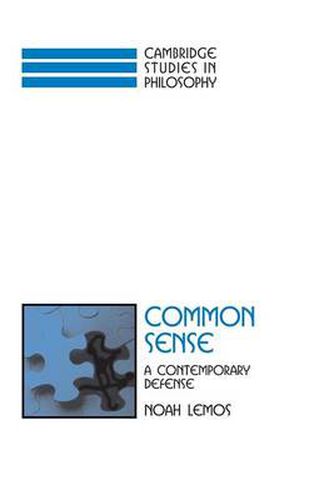Readings Newsletter
Become a Readings Member to make your shopping experience even easier.
Sign in or sign up for free!
You’re not far away from qualifying for FREE standard shipping within Australia
You’ve qualified for FREE standard shipping within Australia
The cart is loading…






In this book, Noah Lemos presents a strong defense of the common sense tradition, the view that we may take as data for philosophical inquiry many of the things we ordinarily think we know. He discusses the main features of that tradition as expounded by Thomas Reid, G. E. Moore and Roderick Chisholm. For a long time common sense philosophers have been subject to two main objections: that they fail to give any non-circular argument for the reliability of memory and perception; and that they pick out instances of knowledge without knowing a criterion for knowledge. Lemos defends the appeal to what we ordinarily think we know in both epistemology and ethics and thus rejects the charge that common sense is dogmatic, unphilosophical or question-begging. Written in a clear and engaging style, this book will appeal to students and philosophers in epistemology and ethics.
$9.00 standard shipping within Australia
FREE standard shipping within Australia for orders over $100.00
Express & International shipping calculated at checkout
In this book, Noah Lemos presents a strong defense of the common sense tradition, the view that we may take as data for philosophical inquiry many of the things we ordinarily think we know. He discusses the main features of that tradition as expounded by Thomas Reid, G. E. Moore and Roderick Chisholm. For a long time common sense philosophers have been subject to two main objections: that they fail to give any non-circular argument for the reliability of memory and perception; and that they pick out instances of knowledge without knowing a criterion for knowledge. Lemos defends the appeal to what we ordinarily think we know in both epistemology and ethics and thus rejects the charge that common sense is dogmatic, unphilosophical or question-begging. Written in a clear and engaging style, this book will appeal to students and philosophers in epistemology and ethics.